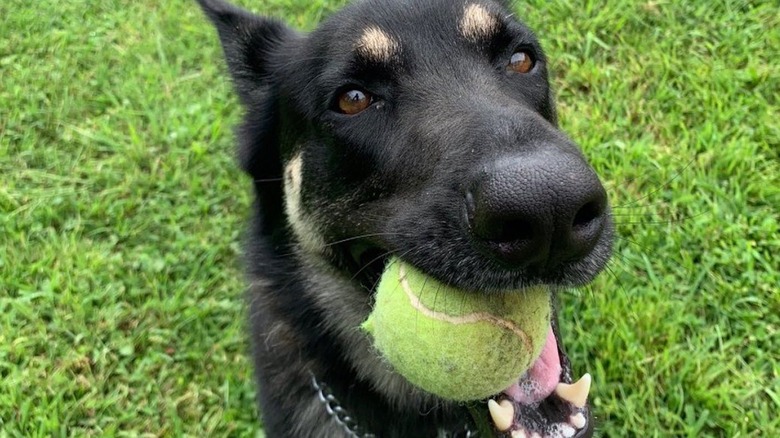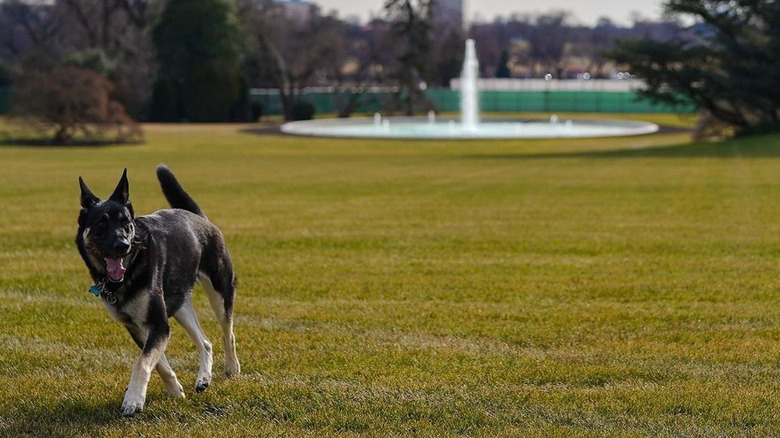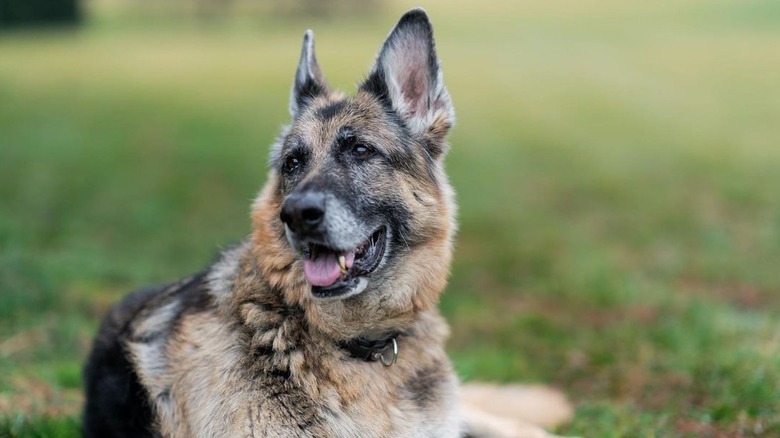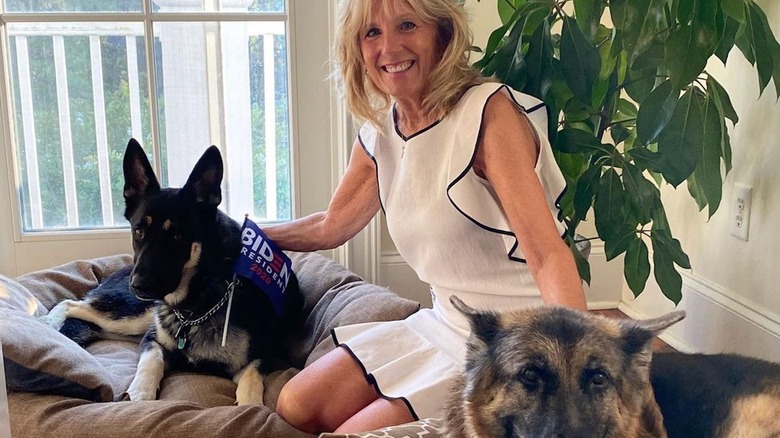Is Major Biden A Bad Dog? Expert Explains
President Joe Biden's youngest dog, Major, hasn't exactly had the smoothest transition to White House life. The three-year-old German shepherd, who was adopted by Biden and First Lady Jill Biden in 2018, is receiving additional training after several biting incidents (via CNN).
But Pat Deshong, President of Furry Friends Adoption, Clinic & Ranch in Jupiter, Florida, tells The List that none of this means Major is a "bad" dog. "Major recently went through a major period of transition and this is not the first time he has done so in his relatively short life," says Deshong. She notes that, according to NPR, Major and his littermates had ingested "an unidentified toxic substance" before being brought to the Delaware Humane Society. "Although the pups recovered after receiving fluids and medication, perhaps the unknown substance Major ingested could have a lasting impact on his behavior," she says.
Furthermore, Deshong notes that it's unknown if Major was mistreated or suffered trauma prior to being surrendered to the shelter. If the answer is yes, certain stimuli could remind Major of someone who harmed him in the past and trigger aggressive behavior.
"It does work in Major's favor that he was brought to the shelter at such a young age, so there are fewer unknowns about his backstory than older dogs who wind up at rescues," says Deshong. The Bidens also fostered Major before adopting him, so the arrangement with the family itself isn't a problem.
Moving from Delaware to the White House was a huge adjustment
Deshong notes that Major seemed to "assimilate very well" to life with the Bidens in their Delaware home. But in January he was completely uprooted from his familiar surroundings and into a completely foreign environment.
"The atmosphere at the White House is obviously very, very different from living in a traditional American home. The White House doubles as an office," says Deshong. "There are staff members, security, and visitors around the clock. This creates lots of stimuli for a dog to adjust to. There are a lot of new sights, smells, and sounds."
In addition to learning to navigate his new home, Deshong says that Major likely has a different person who takes him for walks or lets him out onto the lawn. Plus, he's not just adjusting to new people — there are dogs around that aren't pets. "There is a K9 Unit there providing security, and undoubtedly, many of those security dogs are also German Shepherds. Major is getting used to them being around as well," Deshong explains. "He is used to having Champ to play with, but these security dogs are not there to be his playmates." Major probably doesn't understand that some of these dogs are "at work" because, well, he's a dog.
Champ has had an easier transition due to his age and past experiences
Deshong emphasizes that Major's rough adjustment to his new home is not a reason to make sweeping statements about German shepherds or rescue dogs. "Like people, dogs and other types of animals have individual personalities. Some dogs have a calmer, friendlier disposition than others, regardless of breed," she says. Major is the same breed as the Biden's older dog, Champ, but each has his own personality.
Champ's move from Delaware to D.C. has gone smoothly and Deshong says there could be several reasons for this. "Age could play a factor. As dogs age, they tend to become calmer. They don't have as much energy as they once did and aren't as quick to respond to stimuli that once triggered them to bark, jump, run, etc.," she says. Plus, Champ is more accustomed to his surroundings because he was already a member of Joe Biden's family during his vice presidency and he's lived among security and staffers.
"This isn't Champ's first time at the rodeo," says Deshong.
Rescue dogs and very lovable and very trainable
The training process may take some trial and error, according to Deshong. "When Major previously underwent obedience training, he learned to respond to the Bidens as his masters. Major has a new handler now," she says. "It is important for this new person to be involved in Major's new training program, so Major learns that this new person is now his boss, so to say." She explains that there are many dog training methods and "some dogs respond to one method better than another." Like any other dog, Major will likely have a period of trial and error before they find the right trainer and training regimen.
Deshong also says it's important that we don't stigmatize rescue dogs as biters because they are "very lovable and very trainable."
"Because some shelter dogs have had a traumatic past that could include neglect, malnourishment, and violence, they may need extra training, but they are still completely trainable. The incidents involving Major shouldn't make anyone who is considering dog adoption hesitant from doing so," says Deshong. "Rescue dogs realize that they were rescued and offer their families extra love as a thank you for saving them."



